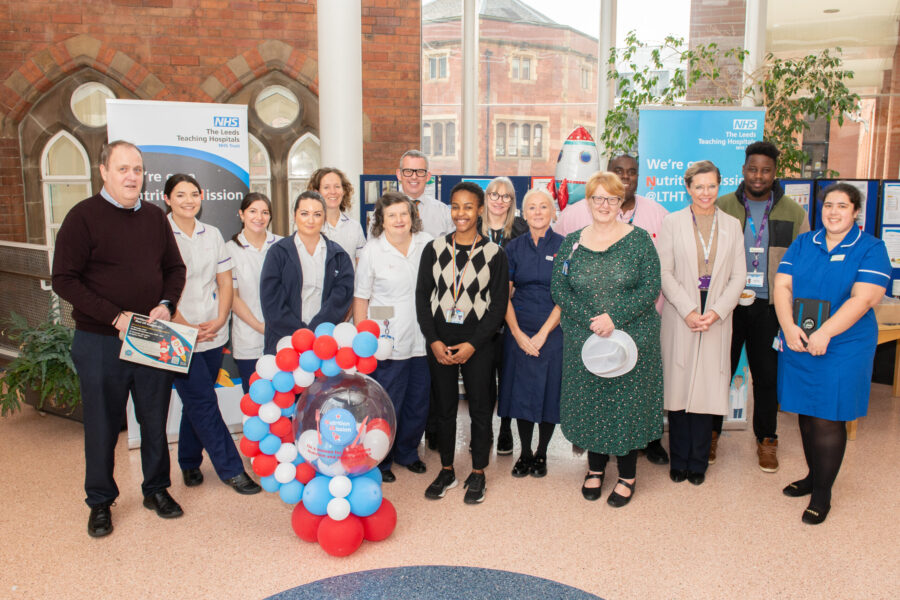
We know that by ensuring our patients receive outstanding nutrition and hydration care we can reduce our patients’ length of stay, reduce infections, and improve their overall experience of care whilst in hospital.
Malnutrition is when you do not get all the nutrients (such as energy or protein) your body needs to function properly. In the UK, malnutrition affects more than one in 20 people, and this increases to one in 10 for people over 65. 30% of patients admitted to UK hospitals are malnourished and this can worsen during their time in hospital, leading to longer hospital stays.
Eating and drinking well in hospital will help you:
- Keep fit and strong
- Keep you focused and feeling yourself
- Heal wounds and injuries quicker
- Stay in hospital for less time
- Fight possible infection and pressure ulcers
- Keep your bladder and bowels regular and healthy
Since Nutrition Mission started the campaign countdown earlier in 2023, several improvement projects have started across the Trust, taking into account patient feedback, and ward and mealtime observations.
Many teams across the Trust have now pledged to support outstanding nutrition and hydration care for their patients following the campaign launch in November. We’ll be sharing some of these on our social media channels over the coming weeks.
We are encouraging staff from all professions and departments to explore how they can support patient nutrition and hydration. We are supporting ward-based nutrition champions to promote this work and encouraging wards to review and improve current practice based on patient feedback and ward reports. A ward accreditation scheme will also be launched to recognise and reward great care.
Our staff can be busy but they want you to get better – you can help make sure you are eating and drinking well in hospital too:
- Let staff know if you need help at mealtimes.
- Tell staff what meals you like and what you don’t like.
- Don’t be afraid to ask for a snack or glass of milk outside mealtimes.
- If you are concerned you are not eating or drinking enough, speak to your nurse or doctor.
- Relatives or carers can support by bringing in snacks such as biscuits, small boxes of cereal, crackers, crisps, cake, or long-life puddings such as custard pots.
Chief Nurse Rabina Tindale said:
It’s really important we see nutrition as both physiologically and psychologically important to our patients. For me, what’s really important is that we involve everybody that’s part of the multi-professional team – and that can be anybody – to make sure that patients receive the right nutrition that’s personalised for them. That can be anything from food and drink right through to enteral nutrition, but making sure it’s central to their care.